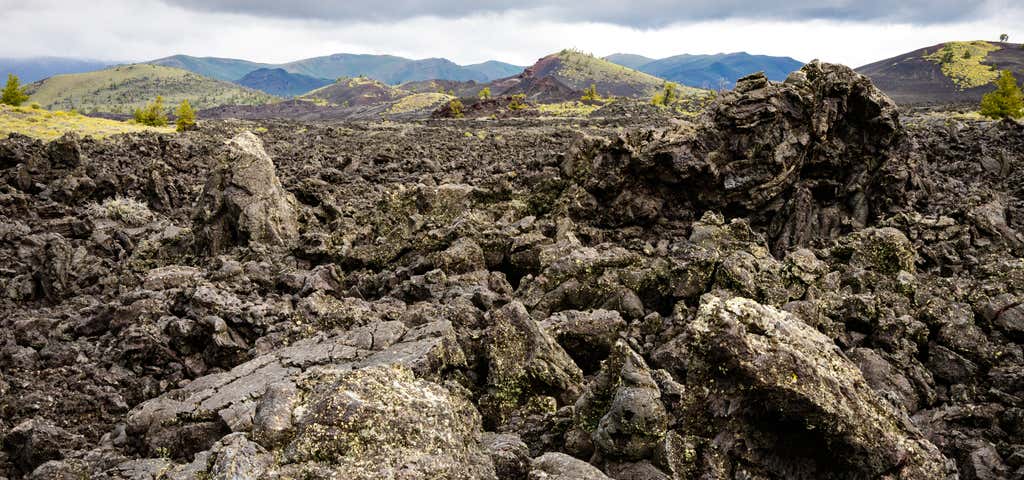“A lunar landscape on earth”
Explore a surreal landscape of volcanic craters, lava fields, and cinder cones that resemble the surface of the moon. Marvel at the rugged beauty of this unique geologic wonderland as you hike among twisted lava formations and explore caves formed by ancient lava flows. Discover the fascinating history of volcanic activity in the area and learn about the unique plants and animals that have adapted to thrive in this lunar-like environment. Get ready for an out-of-this-world experience at Craters of the Moon National Monument!
Some tips:
1) It is remarkable how quickly the landscape changes as you approach these lava fields. Was glad we made the stop and took the time to look around. Take the time to enjoy it before the park.
2) Check ahead. If you want to hike in the lava tunnels, call first. We were excited about this, but they were all closed. Too much rain, I'm guessing, but they didn't say.
3) Enjoy the hikes. There are easy to moderate climbs. The paths are beautifully laid out, so you get to experience a variety. Do stay on the paths, please.
4) Take some time for plants. Hopefully, you'll get to see some of the amazing flowers. They're tiny, but there's a whole world of beauty to be found if you look.
I don't think I'd make a trip across the country for this one, but if you're on a road trip through Idaho, then this is a must stop.
Be the first to add a review to the Craters of the Moon National Monument.
/-113.5585,43.4612,14/300x172@2x?access_token=pk.eyJ1Ijoicm9hZHRyaXBwZXJzIiwiYSI6ImNsczF1Y3RwcTA0ZmgycHAwbngweHlmbDAifQ.G6RP_RvWmMx8yNQSHb3PGQ)
Craters of the Moon National Monument
Hours
- Sun - Sat: 12:00 am - 11:59 pm
Problem with this listing? Let us know.
Has RV parking changed? Let us know.
Good for hiking.
-
Parking
-
Pets Allowed
-
Restrooms
-
Wifi
-
Wheelchair Accessible
-
Credit Cards Accepted
- Affiliation
- Bureau of Land Management (BLM)
-
Sites
-
Fifty Amp
-
Paved Sites
-
Outdoor Seating
Campground, Parking, Dining, RV Services
Nearby Hotels
Related Trip Guides
The Great Northern is a 3,600 mile, cross-country odyssey
- 57 Places
- 69:15
- 3,565 mi
The top things to do on a U.S. Route 20 road trip
- 23 Places
- 60:25
- 3,576 mi
Road trip along the Oregon Trail: A journey through history
- 31 Places
- 36:24
- 2,114 mi

